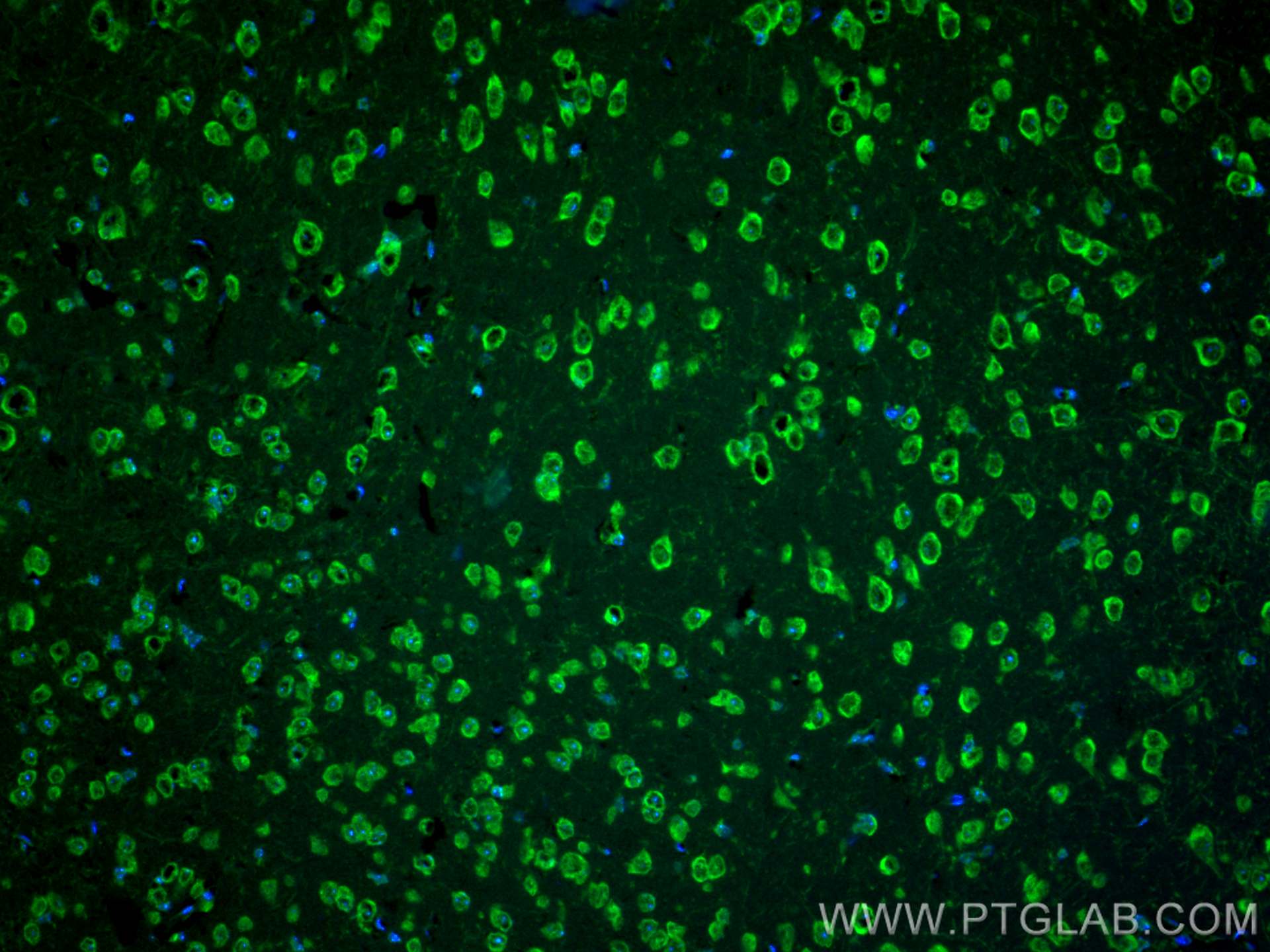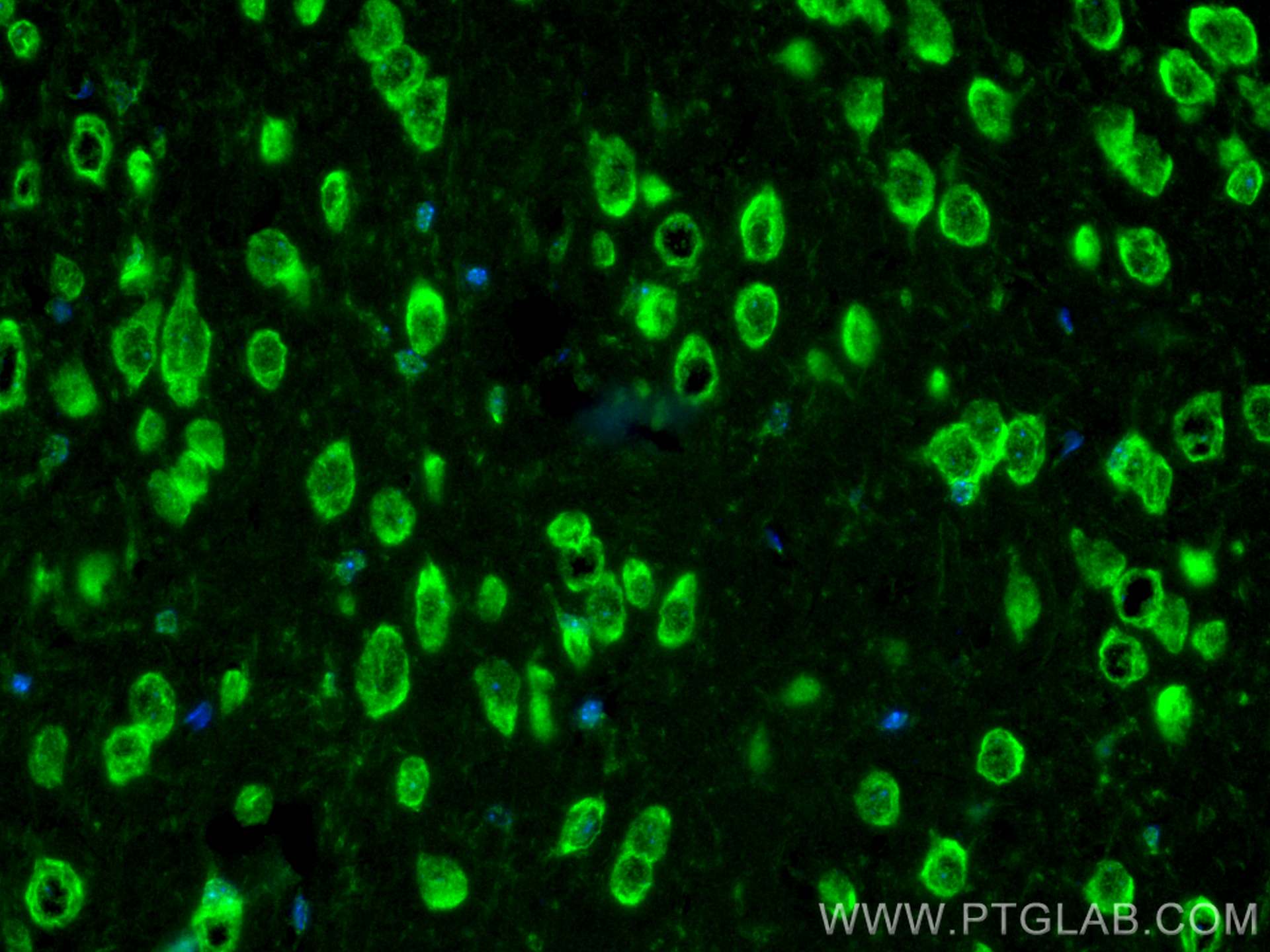- Featured Product
- KD/KO Validated
FABP3 Polyklonaler Antikörper
FABP3 Polyklonal Antikörper für IF-P
Wirt / Isotyp
Kaninchen / IgG
Getestete Reaktivität
human, Maus, Ratte
Anwendung
IF-P
Konjugation
CoraLite® Plus 488 Fluorescent Dye
Kat-Nr. : CL488-10676
Synonyme
Geprüfte Anwendungen
| Erfolgreiche Detektion in IF-P | Maushirngewebe |
Empfohlene Verdünnung
| Anwendung | Verdünnung |
|---|---|
| Immunfluoreszenz (IF)-P | IF-P : 1:50-1:500 |
| It is recommended that this reagent should be titrated in each testing system to obtain optimal results. | |
| Sample-dependent, check data in validation data gallery | |
Produktinformation
CL488-10676 bindet in IF-P FABP3 und zeigt Reaktivität mit human, Maus, Ratten
| Getestete Reaktivität | human, Maus, Ratte |
| Wirt / Isotyp | Kaninchen / IgG |
| Klonalität | Polyklonal |
| Typ | Antikörper |
| Immunogen | FABP3 fusion protein Ag1069 |
| Vollständiger Name | fatty acid binding protein 3, muscle and heart (mammary-derived growth inhibitor) |
| Berechnetes Molekulargewicht | 15 kDa |
| Beobachtetes Molekulargewicht | 15 kDa |
| GenBank-Zugangsnummer | BC007021 |
| Gene symbol | FABP3 |
| Gene ID (NCBI) | 2170 |
| Konjugation | CoraLite® Plus 488 Fluorescent Dye |
| Excitation/Emission maxima wavelengths | 493 nm / 522 nm |
| Form | Liquid |
| Reinigungsmethode | Antigen-Affinitätsreinigung |
| Lagerungspuffer | PBS with 50% glycerol, 0.05% Proclin300, 0.5% BSA |
| Lagerungsbedingungen | Bei -20°C lagern. Vor Licht schützen. Nach dem Versand ein Jahr stabil. Aliquotieren ist bei -20oC Lagerung nicht notwendig. 20ul Größen enthalten 0,1% BSA. |
Hintergrundinformationen
FABP3 (fatty-acid-binding protein 3), also known as heart-type FABP or mammary-derived growth inhibitor (MDGI), is a small 15-kDa cytoplasmic protein transporting fatty acids and other lipophilic substances from the cytoplasm to the nucleus. It is most ubiquitously expressed in heart and skeletal muscle.
Protokolle
| PRODUKTSPEZIFISCHE PROTOKOLLE | |
|---|---|
| IF protocol for CL Plus 488 FABP3 antibody CL488-10676 | Protokoll herunterladen |
| STANDARD-PROTOKOLLE | |
|---|---|
| Klicken Sie hier, um unsere Standardprotokolle anzuzeigen |



